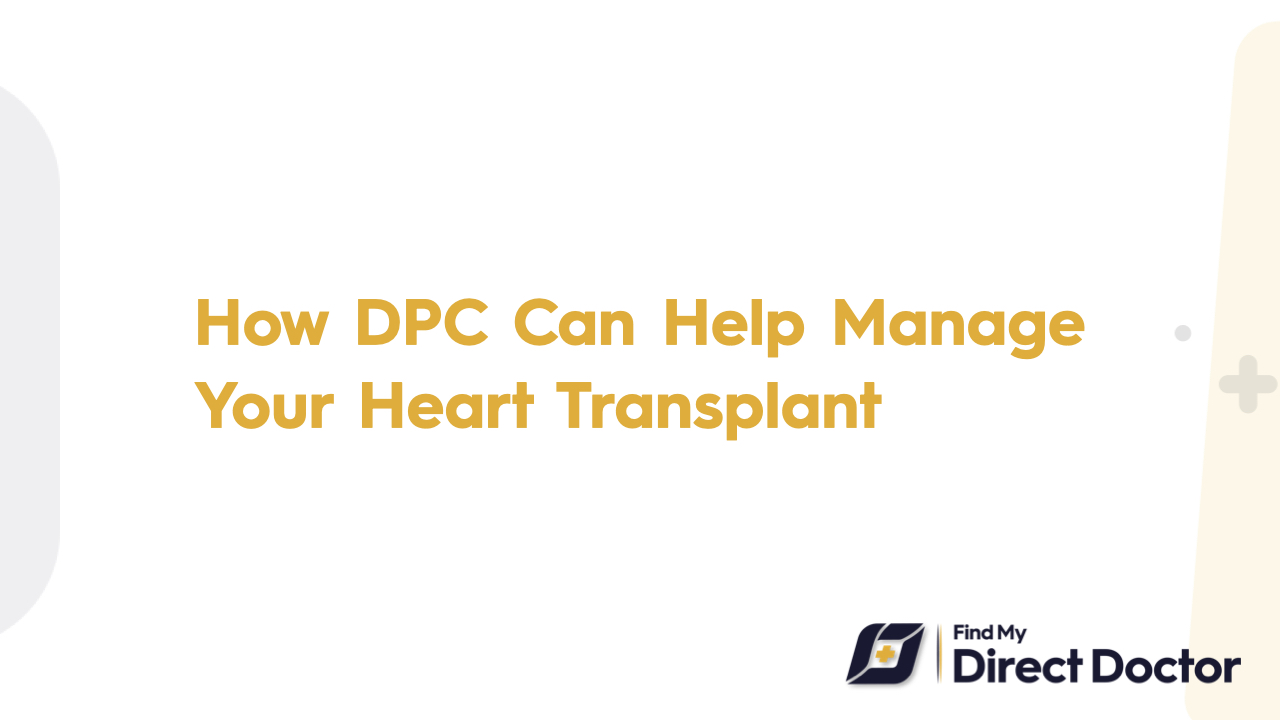



A heart transplant is a medical operation where a healthy donor heart is used to replace a damaged or diseased one. It is usually taken into consideration when other heart failure treatments, such medicine or surgery, are no longer working.

Severe dyspnea, exhaustion, fluid retention, and irregular heartbeats are some signs that a heart transplant is necessary. Patients may also struggle to do daily duties because of a lack of energy and experience swelling in their legs, belly, or ankles as their heart becomes less efficient.
Heart transplant patients can benefit from Direct Primary treatment (DPC), which offers ongoing treatment prior to, during, and following the procedure. To make sure patients are ready for the transplant procedure and to track their recuperation following it, DPC doctors collaborate closely with transplant specialists.
Patients who receive DPC benefit from individualized treatment and frequent check-ins to monitor heart function, handle issues, and handle any problems. All facets of the patient's health are taken care of during their transplant journey when they have a committed primary care physician.
The intimate connection with a primary care physician is one of the main advantages of DPC for heart transplant recipients. Better care coordination, quicker reaction times, and customized treatment programs to fit each patient's needs are made possible by this.
Additionally, DPC assists in the administration of the drugs required for transplant recipients, guaranteeing appropriate dosage, control of side effects, and modification as required. Heart transplant recipients can concentrate on their recuperation without having to worry about protracted wait periods or care delays because of the ease of access to a healthcare professional.
In order to guarantee the best possible recovery and long-term success, heart transplant care in DPC is highly customized. The treatment plan is tailored to each patient's unique requirements, lifestyle, and medical background from the pre-transplant assessment to the post-transplant follow-up.
In order to support lifestyle modifications like diet and exercise that enhance heart health, DPC doctors routinely evaluate the progress of transplant patients. This all-encompassing method of heart transplant care lowers the likelihood of problems and helps recipients have healthier lives after the procedure.
Previous Post
Next Post